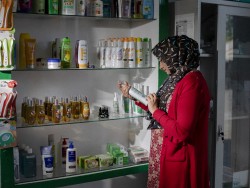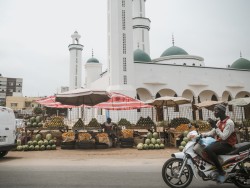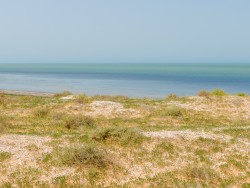Chea Laichea
Chea Laichea is presently serving as Director of International Cooperation Department of the Ministry of Commerce. His responsibilities include mobilizing resources from donors and development partners to implement and manage trade related projects at the Ministry of Commerce and in collaboration with the Government’s agencies and development partners. He involved in the process of designing and formulating trade strategies and policies including the E-Commerce Strategy. In addition, he is currently leading and managing the implementation of an E-commerce project called “Go4eCAM” with the objective to increase the economic opportunities for Cambodian MSMEs in e-commerce through various activities with the Ministry and collaboration with implementing agencies such as UNDP Cambodia and E-Commerce Association including CEA & CDTA. He has also fully engaged with the second review of e T Ready from UNCTAD.
Prior to his current role, Mr. Laichea was a Commercial Counsellor of the Permanent Mission of the Kingdom of Cambodia to the WTO in Geneva for three years where he involved in WTO works and its related activities, through participating in trade negotiations and observing all WTO committees, goods and services councils, General Councils and its related issues. He participated in several discussions of WTO new issues and reforms as well as observed closely the WTO E-Commerce Joint Statement Initiative (JSI).
Before that, he was a Deputy Director of Notifications and Legal Compliance and Chief of WTO Affairs Bureau. His roles included reviewing laws or regulations, participating in the drafting review process of Cambodian laws and regulations to ensure compliance with WTO obligations, coordinating with Cambodian inter-ministry groups to work on Cambodia’s trade policy reviews, and assisting in assembling government teams to participate in international trade negotiations.
He has a Bachelor of Business Administration in Business Economics from the National University of Management in Phnom Penh, Cambodia and a Master of Laws in International Economic and Business Law from Kyushu University in Fukuoka, Japan.

Comoros, daring to win against the odds

Strengthening productivity, institutions and e-commerce in Senegal

Empowering women in Mauritania: From the margins to the centre of ecotourism development

